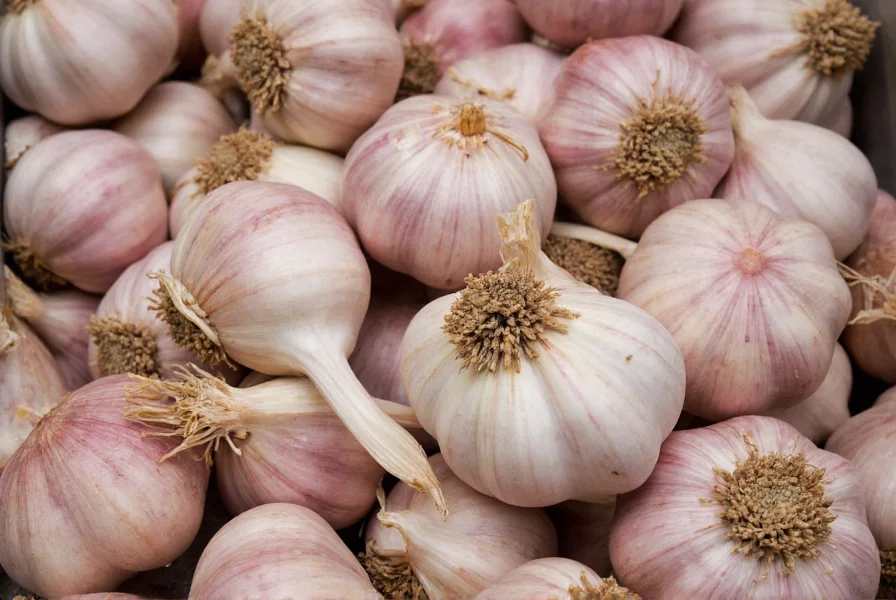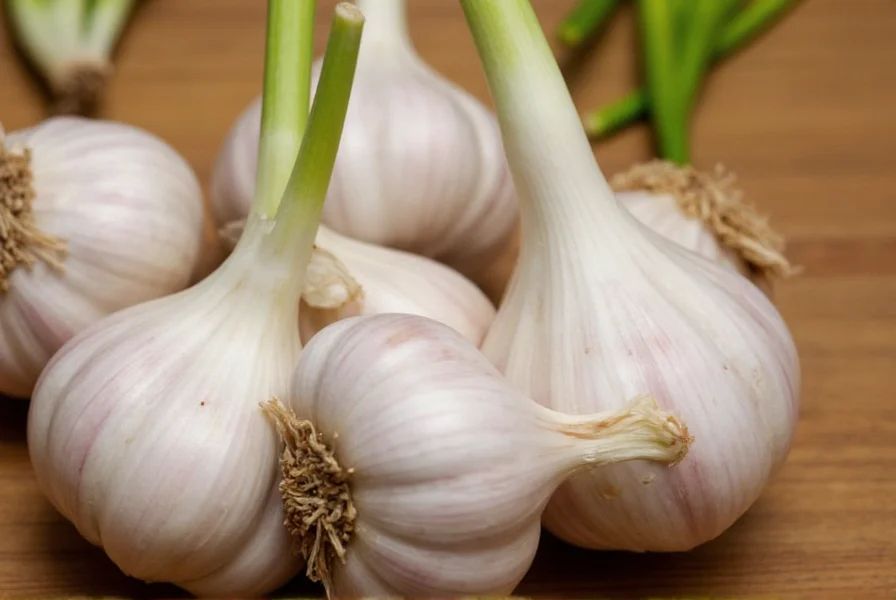China Garlic: From Kitchen Staple to Global Superstar – A Spicy Deep Dive!
Table of Contents
- Introduction: Why China Garlic is the Unsung Hero of Your Pantry
- Why China? Understanding the Origins and Popularity of Chinese Garlic
- Garlic Showdown: White vs. Purple, Softneck vs. Hardneck
- Buying Guide: How to Choose the Best China Garlic
- Spice It Up: Creative Ways to Use China Garlic in Your Cooking
- Beyond Flavor: The Health Perks of Eating China Garlic
- Around the World in a Clove: China Garlic’s Role in International Cuisines
- Storing & Preserving: Keep Your Garlic Fresh Longer
- Final Thoughts: Embrace the Aroma of China Garlic
Introduction: Why China Garlic is the Unsung Hero of Your Pantry
If you’ve ever peeled a clove for a stir-fry or crushed it into a marinade, you know that China garlic has a punchy presence in your kitchen. But what makes this humble bulb so special?
It's not just about flavor—it’s about versatility, availability, and that unmistakable aroma that fills your home when it hits the pan. In fact, China is the world's largest producer of garlic, accounting for over 70% of global output. Let’s take a closer look at why China garlic deserves a spotlight on your spice shelf.
Why China? Understanding the Origins and Popularity of Chinese Garlic
The story of China garlic begins thousands of years ago. Yes, really! Garlic was cultivated in ancient China as early as 207 BCE during the Han Dynasty. Today, provinces like Shandong and Henan dominate production, thanks to ideal climate conditions and centuries-old farming techniques.
| Country | Annual Garlic Production (in metric tons) | Percentage of Global Output |
|---|---|---|
| China | 23,000,000 | ~76% |
| India | 1,400,000 | 5% |
| South Korea | 500,000 | 2% |
| United States | 450,000 | 1.5% |
What gives China garlic its edge? For starters, it tends to be larger, easier to peel, and has a milder yet bold enough flavor profile to suit a wide range of dishes—from street food to gourmet meals.
Garlic Showdown: White vs. Purple, Softneck vs. Hardneck
Not all garlic is created equal. When shopping for China garlic, you’ll often see two main types:
- White Garlic: Milder flavor, smooth skin, and easy to peel. Great for everyday cooking.
- Purple Stripe Garlic: Stronger taste, slightly spicy kick, with colorful stripes. Often used by chefs for bolder dishes.
There’s also the texture factor—softneck vs. hardneck:
| Type | Flavor Profile | Texture | Best For |
|---|---|---|---|
| Softneck | Mild, sweetish | Easier to peel, more cloves per bulb | Everyday use, roasting, sauces |
| Hardneck | Bold, spicy, complex | Fewer cloves, harder stem | Chef-driven recipes, grilling, artisan oils |
Buying Guide: How to Choose the Best China Garlic
Ready to stock up? Here’s how to spot top-quality China garlic in the store or market:
- Check for firmness: Avoid soft or moldy bulbs. You want them plump and tight.
- Look at the color: Uniform white or clean purple streaks mean freshness.
- Size matters: Larger bulbs tend to be more mature and flavorful.
- Peel test: If you can peel a clove easily without squishing it, that’s a good sign.
- Aroma: Give it a gentle rub—if it smells garlicky, you’re golden.

Here are some recommended brands and their key features:
| Brand | Origin | Flavor Strength | Use Case | Target Audience |
|---|---|---|---|---|
| Jiangxi Gold | Shandong, China | Moderate | Asian cuisine, soups, dressings | Home cooks, beginners |
| Huanglong Spice | Henan, China | Strong | Grilled meats, roasted veggies | Advanced home chefs |
| DreamClover Organics | Organic China | Mild to strong | Raw consumption, herbal use | Health-conscious consumers |
Spice It Up: Creative Ways to Use China Garlic in Your Cooking
You don’t have to stick to mincing it and sautéing it every time! Here are some fun and unexpected ways to make the most of China garlic:
- Roasted Whole Garlic: Toss bulbs with olive oil, wrap in foil, and roast until golden. Spread on bread or mix into mashed potatoes.
- Garlic Butter: Blend softened butter with crushed garlic, salt, and herbs. Perfect for steak or grilled corn.
- Infused Oils: Infuse garlic into olive oil for drizzling or dipping. Store in dark bottles for up to 2 weeks.
- Garlic Ice Cubes: Freeze chopped garlic in ice cube trays with water or broth for quick flavor bombs in soups.
- Marinades & Rubs: Combine with soy sauce, honey, chili flakes, and sesame oil for an Asian-inspired glaze.
Beyond Flavor: The Health Perks of Eating China Garlic
Beyond the kitchen, garlic has been praised for centuries in traditional medicine. China garlic contains allicin, a compound known for its antimicrobial, anti-inflammatory, and immune-boosting properties.
Some of the science-backed benefits include:
- Lower blood pressure – Studies show regular garlic intake may reduce hypertension.
- Improved cholesterol levels – May help lower LDL (“bad”) cholesterol.
- Natural antibiotic – Allicin fights bacteria and viruses effectively.
- Heart health – Regular consumption may support cardiovascular function.
- Immune booster – Especially helpful during cold and flu season.
Around the World in a Clove: China Garlic’s Role in International Cuisines
From Italian pasta sauces to Korean kimchi, China garlic finds its way into countless global dishes. Here’s how different cuisines put it to work:
| Cuisine | Signature Dish Using China Garlic | Usage Style |
|---|---|---|
| Italian | Aglio e Olio | Sliced thin and sautéed in olive oil |
| Chinese | Kung Pao Chicken | Chopped and stir-fried with chili peppers |
| Mexican | Adobo Sauce | Blended with tomatoes, chili, and spices |
| French | Ratatouille | Minced and added early in the cooking process |
| Middle Eastern | Hummus | Blended raw for a zesty boost |

Storing & Preserving: Keep Your Garlic Fresh Longer
Want your China garlic to last longer than a week? Here are some smart storage tips:
- Keep it dry: Humidity is garlic’s enemy. Store in a cool, dry place like a pantry or kitchen cabinet.
- Breathable containers: Mesh bags or woven baskets allow airflow and prevent sprouting.
- Avoid plastic: Sealed plastic bags trap moisture and encourage mold growth.
- Freeze peeled cloves: Save time by freezing whole or minced garlic in labeled bags.
- Make pickled garlic: Brine garlic in vinegar with peppercorns and chili for a tangy condiment.
Final Thoughts: Embrace the Aroma of China Garlic
Whether you're a seasoned chef or someone who loves a bit of kitchen chemistry, China garlic deserves a permanent spot in your spice collection. Its bold flavor, culinary flexibility, and health benefits make it a true superstar ingredient.
So next time you reach for that head of garlic, take a moment to appreciate where it came from—and how far a little clove can go. With the right knowledge and creativity, you can unlock its full potential and add that authentic international flair to your meals.
Happy cooking—and keep the garlic aroma flowing!










 浙公网安备
33010002000092号
浙公网安备
33010002000092号 浙B2-20120091-4
浙B2-20120091-4